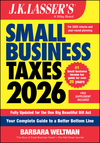New Housing Act Includes New Tax Breaks
On July 23, the House passed an important measure to help avert foreclosure for more than 400,000 homeowners. The Senate will vote on it soon and the President has said he would sign it. In addition to mortgage relief, the measure also includes a number of new tax breaks. Here are some highlights:
- First-time homebuyer credit. A refundable credit can be claimed in the year of buying a first home (which means no home ownership within the past three years prior to the year of purchase). The credit is the lesser of $7,500 ($3,750 for married filing separately) or 10% of the purchase price of the residence. The credit is phased out for homeowners with modified adjusted gross income in the year of purchase between $75,000 and $95,000 ($150,000 and $170,000 for joint filers). The credit applies to purchases on or after April 9, 2008, and before July 1, 2009.
- Additional standard deduction for state and local real property taxes. Homeowners who don't itemize deductions can increase their standard deduction by $500 ($1,000 on a joint return) for real estate taxes they've paid. This break applies only for 2008.
- AMT offset for certain credits. The low-income housing tax credit and rehabilitation credit may offset alternative minimum tax (AMT) liability. This break also applies beginning this year. (The properties for the low-income housing credit must be placed in service after December 31, 2007, and the rehabilitation expenses for the rehabilitation credit must also be after December 31, 2007.) Also, interest on exempt facility bonds issued to provide qualified residential rental projects, qualified mortgage bonds, and qualified veterans' mortgage bonds are no longer treated as an item preference for purposes of the AMT, effective for bonds issued after the date of enactment.
To help pay for the mortgage bailout and tax breaks, the new law includes a number of revenue raisers. Most affect businesses. One key change for individuals is a restriction on the use of the home sale exclusion. Gain from the sale of a principal residence allocated to periods of nonqualified use (e.g., when the home is used as rental or vacation property) does not qualify for the home sale exclusion. For example, a person buys property on January 1, 2009, for $400,000 and uses it as rental property for two years. During this period, the person claimed $20,000 of depreciation. On January 1, 2011, the person converts the property to his principal residence and, on January 1, 2013, moves out; he sells the home on January 1, 2014, for $700,000. In this case, 40% of the gain (2 years divided by 5 years) is allocated to nonqualified use and is not eligible for the exclusion. This new rule applies to sales or exchanges after December 31, 2008.
Source: Housing and Economic Recovery Act of 2008 (HR 3221)
Qualifying widow or widower
A filing status entitling the taxpayer with dependents to use joint tax rates for up to two tax years after the death of a spouse.



